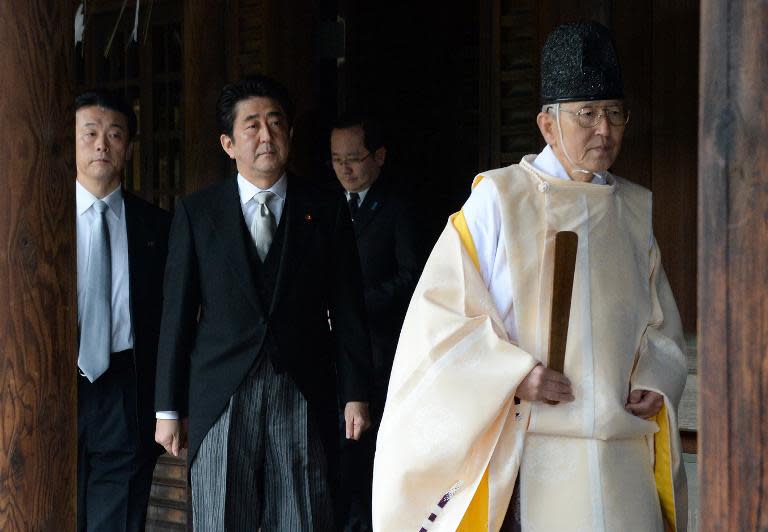The diplomatic row between Japan and China degenerated into name-calling in the British press on Monday, with ambassadors invoking the fictional evil wizard from the Harry Potter series, Lord Voldemort, in claims and counter-claims. In a commentary in the Daily Telegraph newspaper, Tokyo’s envoy to London, Keiichi Hayashi, compared Beijing to the arch-villain from JK Rowling’s multimillion-selling books and resulting film series. “East Asia is now at a crossroads. Two paths are open to China,” he wrote. “One is to seek dialogue and abide by the rule of law. The other is to play Voldemort’s role in the region by unleashing the evil of an arms race and escalating tensions, although Japan will not escalate the situation on its part,” he said. “The answer seems obvious. Although China has so far refused to facilitate a dialogue between our leaders, I sincerely hope it will agree to do so, rather than continuing to raise the specter of ‘militarism’ from seven decades ago that no longer exists,” Hayashi wrote. Asia’s two largest economies have long had a difficult relationship marked by disagreements on a wide range of issues, many of which are tied to bitter memories of violence by Japanese soldiers in Asia before and during World War II. But since Tokyo bought a series of disputed islands in the East China Sea in 2012, relations have deteriorated, fuelling nationalism in both countries that has led to paramilitary ships and aircraft from both sides being involved in regular skirmishes around the islands. Hayashi’s letter was apparently a response to an earlier editorial – also referring to the boy wizard’s nemesis – published in the Daily Telegraph on January 1 by Liu Xiaoming, the Chinese ambassador to London. Liu sharply criticized Japanese Prime Minister Shinzo Abe’s December 26 visit to the controversial Yasukuni Shrine in Tokyo, which honors war dead, including men convicted of serious war crimes following Japan’s 1945 defeat in World War II. The Shinto shrine is seen by China and other Asian countries as a symbol of Japan’s militaristic past. “If militarism is like Japan’s haunting Voldemort, then the Yasukuni Shrine in Tokyo is a kind of Horcrux, representing the darkest parts of this nation’s soul,” the Chinese envoy wrote. In the Harry Potter series, a Horcrux is a vessel in which evil characters store fragments of their souls to gain immortality. Voldemort is rarely mentioned by name in the books and films; Hogwarts students and teachers often refer to him simply as “You Know Who.” Hayashi said Abe’s visit was “in no way to pay homage to war criminals or to praise militarism.” “It is ironic that a country that has increased its own military spending by more than 10 percent a year for the past 20 years would label a neighbor ‘militaristic,'” Hayashi wrote. “Its attempt to change the status quo by force or coercion has raised concerns not only in Japan but also among its neighbors in the East China Sea and South China Sea,” he wrote, referring to China’s assertive claims to territories disputed by nations such as the Philippines and Vietnam. On Monday, Abe defended his pilgrimage to the shrine, saying he would like to explain his motivation in person with Chinese President Xi Jinping, but conceded: “There is no prospect of summit talks at this time.” Beijing, for its part, accused Abe of duplicity and made the familiar accusation that he had “hurt the feelings of the Chinese people.” Foreign Ministry spokeswoman Hua Chunying said that from actions such as his visit to Yasukuni Hill, “it is not difficult to see that Abe keeps claiming that he cares about developing relations, but in reality these statements are hypocritical.”
The Harry Potter wizard is called upon again as Japan strikes back against China

